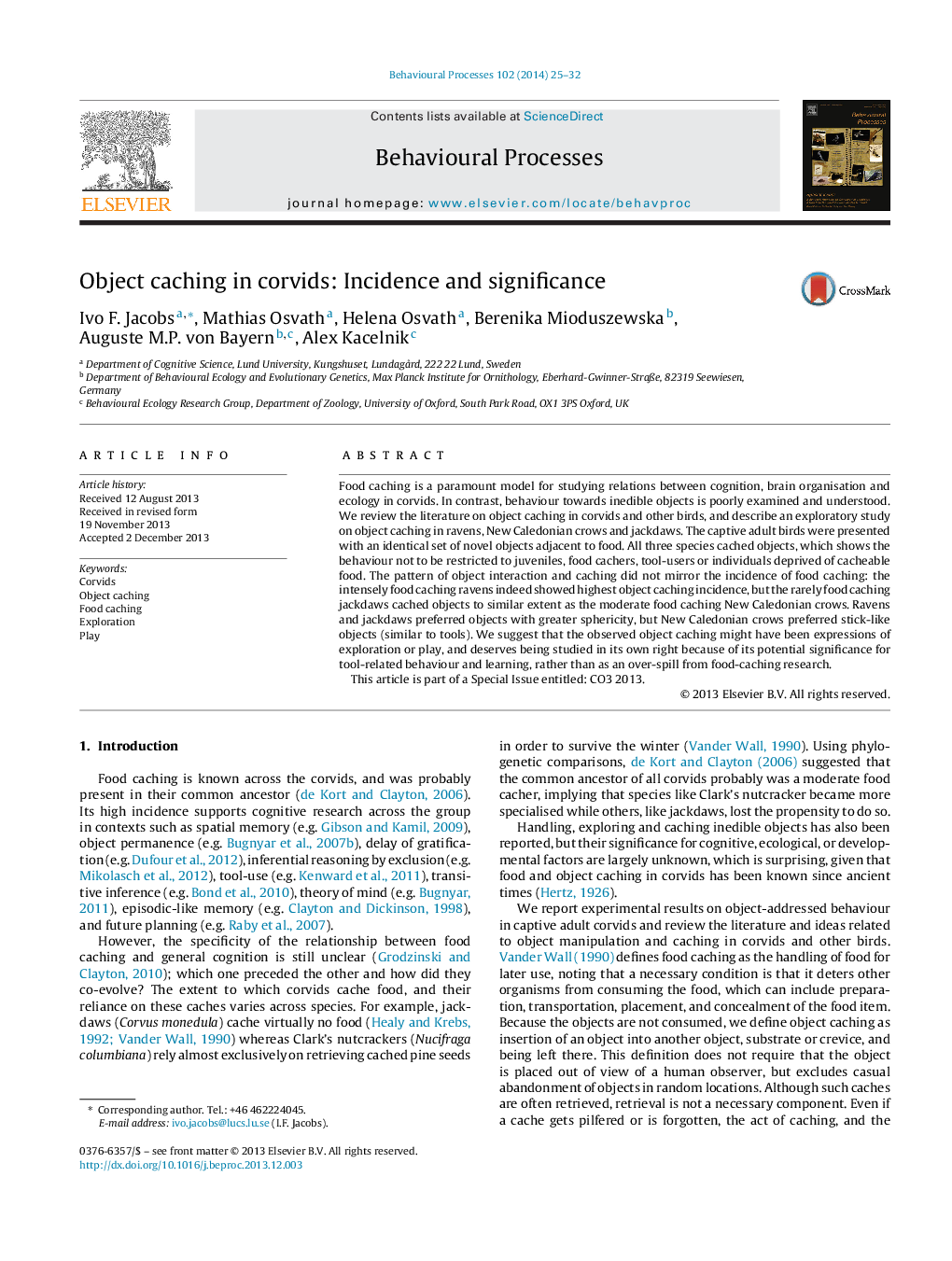| کد مقاله | کد نشریه | سال انتشار | مقاله انگلیسی | نسخه تمام متن |
|---|---|---|---|---|
| 2426774 | 1553177 | 2014 | 8 صفحه PDF | دانلود رایگان |
• Captive adults of three Corvus species frequently cache novel, inedible objects.
• The extent of object caching does not mirror species-typical food caching intensity.
• New Caledonian crows mostly cache objects that could function as a tool.
• Object caching is unlikely to simply be misdirected food caching.
• Interactions with objects, including caching, may reflect affordance exploration or play.
Food caching is a paramount model for studying relations between cognition, brain organisation and ecology in corvids. In contrast, behaviour towards inedible objects is poorly examined and understood. We review the literature on object caching in corvids and other birds, and describe an exploratory study on object caching in ravens, New Caledonian crows and jackdaws. The captive adult birds were presented with an identical set of novel objects adjacent to food. All three species cached objects, which shows the behaviour not to be restricted to juveniles, food cachers, tool-users or individuals deprived of cacheable food. The pattern of object interaction and caching did not mirror the incidence of food caching: the intensely food caching ravens indeed showed highest object caching incidence, but the rarely food caching jackdaws cached objects to similar extent as the moderate food caching New Caledonian crows. Ravens and jackdaws preferred objects with greater sphericity, but New Caledonian crows preferred stick-like objects (similar to tools). We suggest that the observed object caching might have been expressions of exploration or play, and deserves being studied in its own right because of its potential significance for tool-related behaviour and learning, rather than as an over-spill from food-caching research.This article is part of a Special Issue entitled: CO3 2013.
Journal: Behavioural Processes - Volume 102, February 2014, Pages 25–32
